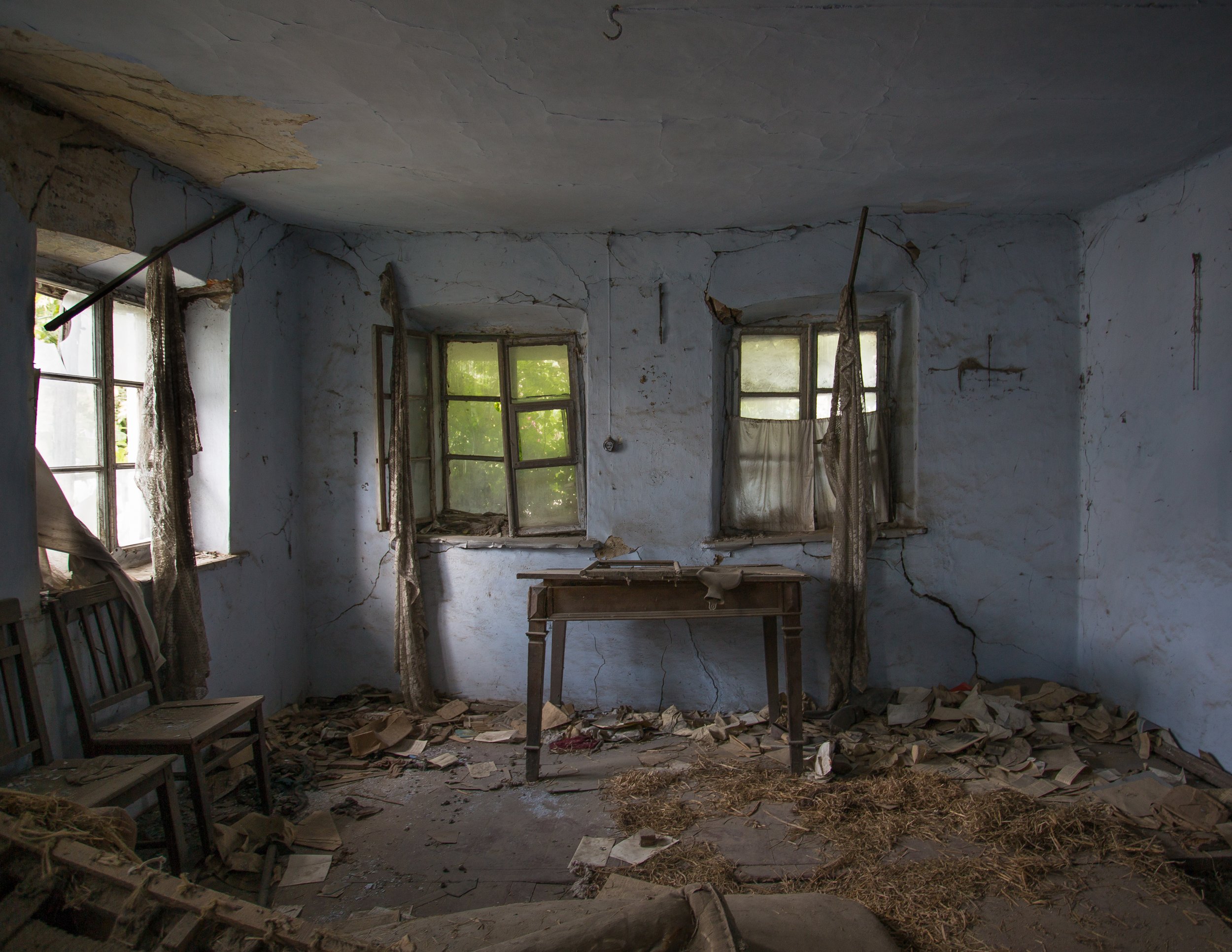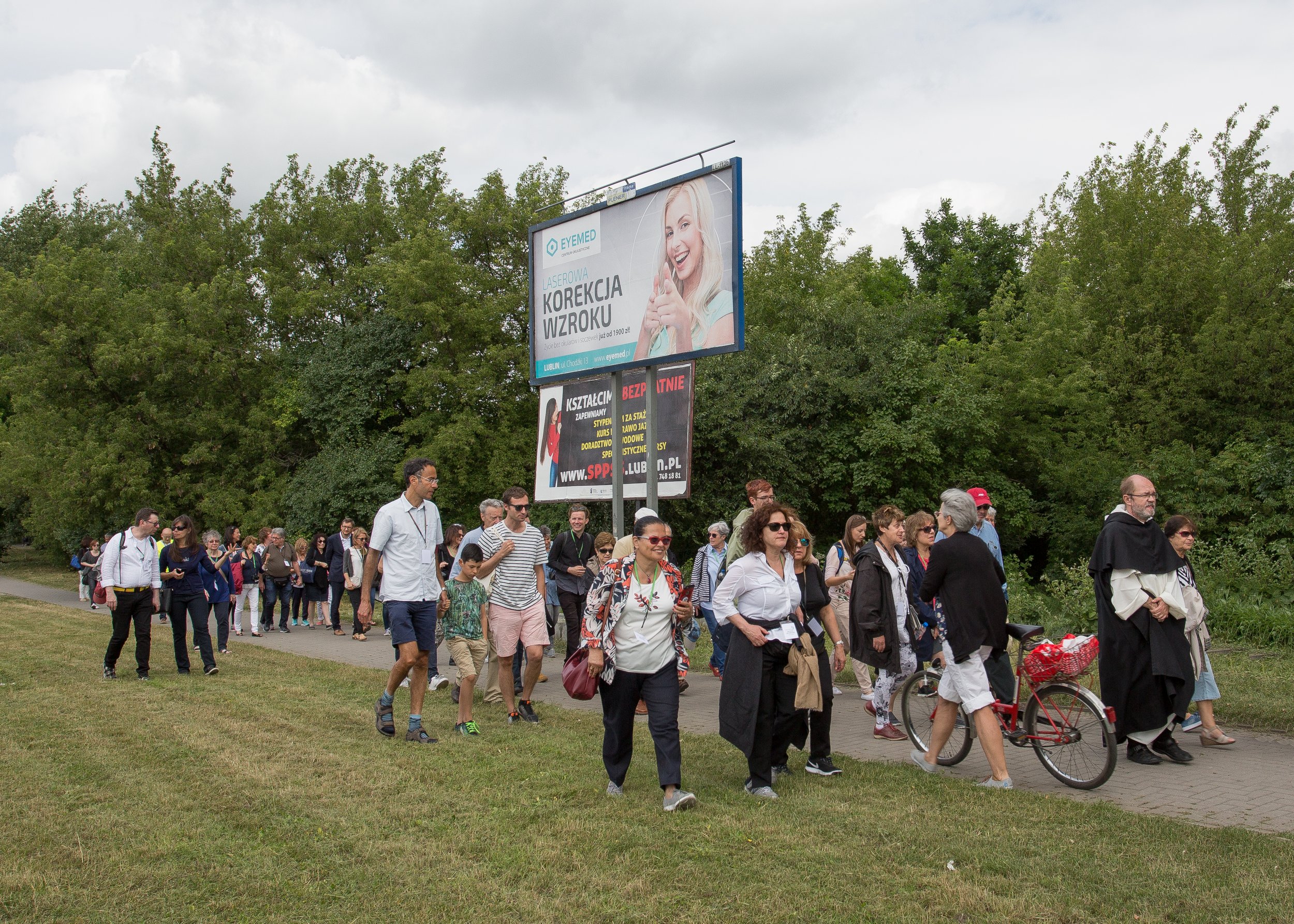In Search of Amnesia
In Search of Amnesia is a documentary project researching the Jewish narrative in south east Poland and north west Ukraine. The project is concerned with memory, specifically how Jewish memory is held in places that suffered atrocity and immense loss. The title of this project refers to a state of trauma: amnesia refers to repressed memories: searching for amnesia is akin to the process of being inextricably drawn to this deep sense of loss whilst at the same time unable to fully revisit the site of original trauma. The images I present occupy this psychological space: the push pull between the horror and the wish to rectify history.
Though the Holocaust looms large, casting its shadow backwards and forwards, this is not specifically about the Shoah. Within Poland and Ukraine, there is a rich historical narrative of a vibrant Jewish culture that developed within Galicia, Volhynia, Podolia and the Kiev Region. These were formerly part of the Habsburg Empire of Austria, a region nestled between Poland and The Russian Empire, and the Pale of Settlement, a region that stretched from the Baltic Sea to the Black Sea. These regions had for centuries been a haven for Judaism and the centre for European Jewish settlement. Poland’s & Ukraine’s cities, towns and villages once held sizeable Jewish populations active in trade, commerce and politics; the shtetls were a product of Jewish trade promoted and taxed by Polish nobility. Within this narrative is the birth of Hassidism, a spiritual reform of the orthodox tradition, and the rise of Haskalah, the Jewish Enlightenment, an intellectual reform of Jewish tradition. This was destroyed during the Second World War by the German policies and aktions designed to deal with the ‘Jewish problem’ and clear the way for the German Volk. Today it is difficult to find traces of these once vibrant communities in the small towns and villages where Jews comprised a large percentage of the population. This project, therefore, seeks to find traces of this narrative through a variety of methods: by seeking remnants of these once vibrant communities in the form of still extant synagogues and beit midrash, often derelict or repurposed; by looking for the physical objects, the relics, stored in museums or sold as tourist trinkets, and by meeting the various custodians of memory: the historians, conservationists, archivists, forensic archeologists, tour guides, artists and academics.
Disinfection Units, Birkenau, Poland
The language of trauma is the language of this absolute erasure, not imaginable in the past or present but, always, as something missed, and about to return, a possibility of a trauma in future.’ ~ Cathy Caruth: Literature in the Ashes of History
Białowieża Forest, Poland
Box Truck, Białowieża, Poland
Caravan, outskirts of Treblinka, Poland
Boat, Frozen Lake, Kock, Poland
Freud taught us that memory and forgetting are indissolubly linked to each other, that memory is but another form of forgetting, and forgetting a form of hidden memory.’ ~ Andreas Huyssen: Present Pasts: Urban Palimpsests and the Politics of Memory
Bohslav, former Shtetl, Ukraine
Former barracks, Birkenau, Oświęcim, Poland
‘This crucial aspect of the human condition – belonging, knowing your narrative – is damaged for many. And damaging the narrative of a people (cultural genocide) is at the core of a destructive, transgenerational process that has many negative manifestations …. the neurobiological consequences of stripping a community or culture of their language, customs, religious beliefs or child-rearing practices are devastating.’ ~ Bruce D. Perry, M.D, Ph.D
Wooden Houses, Kock, Poland (former Jewish homes)
'Yet even before Freud, we knew how fragmentary, evasive, unreliable, and even full of fantasy memory is – especially memory that is formed, and deformed, by trauma.’ ~ Susie Linfield: The Cruel Radiance
Basement, Chortkiv Synagogue, Ukraine
Former Jewish home, Sataniv, Ukraine
Elderly Jewish Man, Holocaust survivor from a village near to Zvenyhorodka
Andriy, outside the Maternity Hospital (formerly the Israelite Jewish Hospital), Lvivi, Ukraine
Goats, Zvenyhorodka Jewish Cemetery, Ukraine
Memorial Walk, Lubliners Reunion 2017, Lublin, Poland - following the route that the Jews were marched out of the ghetto to the Umschlagplatz (holding area adjacent to railway station), the last stage before their deportation to the death camps of Belzec, Sobibor and Treblinka
On the 2nd January 2017 I flew to Krakow to begin a research project exploring the Jewish narrative in Poland and Ukraine, an area previously rich in Jewish culture. This was the start of a long term documentary project and begins, almost predictably, in Auschwitz, but then follows a route that shifts and changes, following leads and hunches, ideas and directions, rivers and transportation lines, ‘dead ends’ and surprising synagogues. It could have been more personal: a return to specific family roots but genealogy was never my purpose.
As I travelled through this memory rich landscape I kept a journal, written over the course of more than four years, attempting to make sense of overt and buried memories, past atrocities and contextual history.
Extended Amnesia ~ Text Extracts
Petrified Forest, near to Sobibor, Poland
click on image for link to shop















